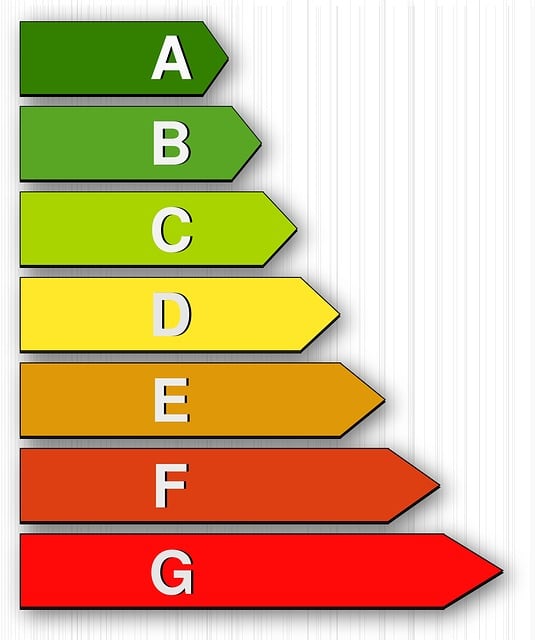Organic search is a powerful, unpaid marketing tool that requires understanding and optimization to improve online visibility. By focusing on content quality, using relevant keywords, building high-quality backlinks, and enhancing user experience, businesses can significantly boost their improve organic search rankings on search engine result pages (SERPs). Regular analysis using tools like Google Analytics and Search Console is crucial for staying informed about algorithm changes and refining SEO strategies.
In today’s digital landscape, improving organic search results is paramount for online success. Understanding how search engines rank websites is the first step. This article guides you through a comprehensive strategy to boost your visibility and rankings. From optimizing website structure and creating engaging content to leveraging keywords and building backlinks, each section offers actionable insights. By implementing these tactics, businesses can significantly enhance their organic reach, attracting more visitors and driving growth.
Understanding Organic Search and Its Importance

Organic search is a fundamental aspect of digital marketing, referring to the unpaid results that appear in search engine result pages (SERPs). Unlike paid advertising, where businesses bid for visibility, organic search rankings are determined by algorithms that consider various factors to deliver relevant and high-quality content to users. Understanding this process is crucial for any business aiming to improve its online presence and attract more organic traffic.
The importance of organic search cannot be overstated. It provides a cost-effective way to reach potential customers, builds credibility through natural results, and offers a better user experience by presenting relevant information. By optimizing content with strategic keywords, creating high-quality backlinks, and ensuring a seamless user journey, businesses can significantly improve their organic search rankings. This, in turn, leads to increased visibility, higher click-through rates, and ultimately, more conversions.
Key Factors Influencing Organic Search Rankings

The key factors influencing organic search rankings are complex and ever-evolving, as search engines like Google continually refine their algorithms to deliver the most relevant results to users. One fundamental aspect is content quality and relevance. Creating comprehensive, informative, and unique content tailored to user queries goes a long way in improving Improve Organic Search Rankings. This involves thorough keyword research to understand what terms people are using when searching for information related to your niche and incorporating these keywords naturally into your web pages.
Another critical component is on-page optimization, which includes optimizing title tags, meta descriptions, header tags, and URL structures. These elements provide search engines with context about the content of a page, helping them understand what the page is about and how it relates to user queries. Additionally, backlinks from authoritative sites play a significant role in ranking. Building high-quality backlinks through strategic outreach, guest blogging, or creating shareable content can signal to search engines that your site is valuable and trustworthy, ultimately boosting organic search rankings.
Optimizing Your Website for Better Visibility

To improve your website’s visibility and ultimately, its organic search rankings, optimizing your site is a crucial step. This involves several strategies to ensure your platform is friendly to search engine crawlers while providing an excellent user experience. One key aspect is ensuring your website has a clear structure with easily navigable menus and internal links. Search engines appreciate when content is well-organized, making it easier for them to index your pages accurately.
Additionally, regular updates of fresh, high-quality content are vital. This doesn’t just mean adding new text; it includes updating old content, ensuring meta titles and descriptions are optimized, and optimizing images with relevant alt tags. Incorporating keywords naturally throughout your content also signals to search engines what your site is about, enhancing its relevance for specific searches.
Creating High-Quality Content That Resonates

Creating high-quality, relevant content is a cornerstone in improving your site’s organic search rankings. To resonate with your target audience and search engine algorithms alike, focus on providing valuable, unique information that answers user queries comprehensively. This involves thorough research to understand user intent behind specific keywords, and crafting content that satisfies this intent. Engaging formats like lists, infographics, or how-to guides can enhance readability and encourage sharing, further boosting your site’s visibility.
Relevancy is key; aligning your content closely with popular search terms and topics within your niche increases the chances of ranking higher in search results. Regularly updating existing content to stay current and incorporate new trends demonstrates to search engines that your site is active and authoritative, further enhancing its organic search rankings.
Utilizing Keywords Effectively in Your Strategy

To improve your site’s organic search rankings, strategic keyword utilization is paramount. Keywords are the backbone of any SEO strategy, acting as a bridge between user queries and your content. Incorporate them naturally within your website’s elements, including titles, headings, meta descriptions, and high-quality content that resonates with your target audience. Think beyond mere density; aim for relevance. Research and understand what terms your ideal users are searching for and tailor your keywords to match these intent-driven phrases.
Effective keyword strategy involves a deep dive into user behavior and search trends. Tools like Google Keyword Planner, SEMrush, or Ahrefs can provide valuable insights on keyword popularity, competition, and related search suggestions. By identifying long-tail keywords—more specific, less competitive terms—you can target niche audiences more effectively. This refined approach not only boosts your rankings but also enhances user experience, as you’re offering precisely what they’re looking for.
Building Quality Backlinks for Enhanced Authority

Building high-quality backlinks is a pivotal strategy in enhancing your website’s authority and, consequently, improving its organic search rankings. These links act as votes of confidence from other reputable sources, signaling to search engines that your content is valuable and trustworthy. Focus on acquiring backlinks from authoritative and relevant websites within your industry. This can be achieved through various methods, including creating compelling, shareable content that naturally attracts links, guest blogging on influential sites, and building relationships with industry influencers.
When securing backlinks, quality should always take precedence over quantity. Each backlink should ideally come from a unique and high-authority domain, ensuring that the link’s context is relevant to your niche. This strategic approach not only boosts your site’s authority but also increases the likelihood of ranking higher in search engine results pages (SERPs), driving more organic traffic to your website.
Regularly Auditing and Analyzing Your Performance

Regularly auditing and analyzing your website’s performance is a cornerstone in improving organic search rankings. By utilizing tools like Google Analytics and Search Console, you can track key metrics such as click-through rates (CTRs), bounce rates, and average session duration. This data provides valuable insights into what’s working well and areas that need optimization. For instance, low CTRs on specific keywords might indicate a need for better content targeting or improved meta titles and descriptions.
Additionally, staying updated with algorithm changes is crucial. Search engines like Google frequently update their algorithms to enhance user experience. Keeping abreast of these changes allows you to adjust your SEO strategies accordingly. Regular audits enable you to ensure that your site remains optimized for relevant keywords and provides a seamless user experience, both of which are essential for climbing the organic search rankings.
